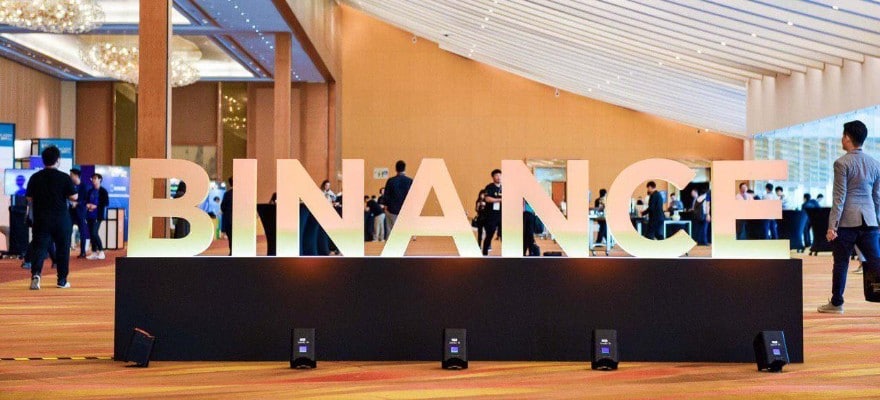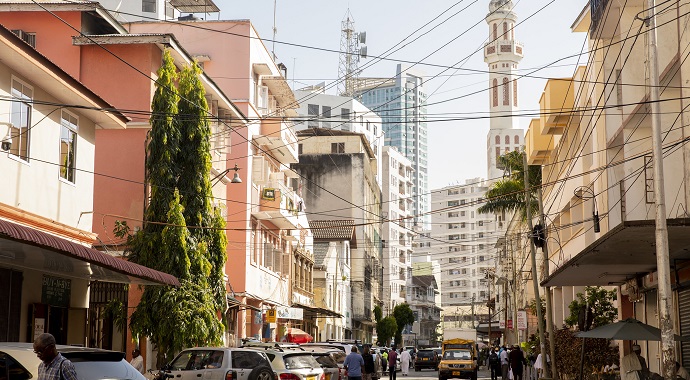On Wednesday, a Nigerian Twitter user Joshua Nwogo tweeted that Binance, the world’s largest crypto exchange that processes 76 billion worth of transactions daily, had permanently blocked his account for 6 months. Accompanying the tweet were screenshots of his account balance, conversations he’d had with a Binance customer representative, and four hashtags—#boycottbinance #binancestopstealingcrypto #binancestopscamming #stoptradingonbinance—calling the exchange giant a scam and urging other customers to stop using the platform.
The tweet picked up momentum due to how the supposed Binance representative handled the situation—with cluelessness and threats. Within a few minutes, other disgruntled users had started reporting their own similar experiences with the platform. By Thursday, the matter had escalated and two of the hashtags were sitting on top of the Nigerian Twitter trends table.
Since there was no response yet from Binance throughout Wednesday, people began to conjure different reasons as to why accounts are getting blocked. Some people said the platform is anti-African and is trying to shut the continent out of the cryptocurrency economy; others said the platform is stealing coins from Nigerians because it’s aware the users are helpless as their government won’t intervene.
On Thursday, Binance, through its Africa operation, made a Twitter thread apologising for inconveniences, assuring users of their commitment, and asking them to fill out a form that would help in tracking and resolving the issues quickly. A few hours later, they announced a YouTube ask-me-anything (AMA) session for the Nigerian community to address the concerns of users regarding account restrictions, user safety, and Binance peer-to-peer (P2P).
At 11 a.m. on Friday, the session, hosted by Dami Odufuwa, head of public relations at Binance Africa, alongside the Binance Africa community manager Nsikan Benjamin and the company’s Africa Director Emmanuel Babalola, started and lasted for about an hour.
According to Babalola, there are 2 reasons an account can be blocked: uncompleted know-your-customer (KYC) registration and detection of fraudulent activities, which he referred to as “law enforcement agencies related issues”.
“We have recorded over 200 cases of blocked accounts and counting, and 30% of them are fraud-related while the rest are a case of [incomplete] KYC,” said Babalola. “We have started resolving these issues and also sent notifications to those whose cases are law enforcement-related.”
KYC means users have to provide some means of identification before they can access some Binance products; their account could be blocked if they continue or try to access these products without completing their KYC.
But what exactly is a fraudulent activity? How can Binance tell if a transaction is fraudulent after coins have been exchanged across different addresses? And why are they allowing law enforcers into their backend? After all, it’s the big ole crypto, popularly known as a means to escape the inconsistency and prying eyes of centralised financial institutions and their regulator buddies.
The backstory
To answer these questions, a little context will suffice. Throughout last year, Binance faced its biggest test: the platform came under aggressive scrutiny from an increasing number of regulators worldwide—from the UK to the US, the Netherlands, Canada, Japan, Malaysia, Thailand, Germany, Cayman Islands, Lithuania, and Hong Kong.
This was a result of countless concerns over the use of crypto to launder money and how Binance is an unchecked instrument of this activity. While several countries have started investigations into Binance and reduced its activities, others have banned anything that has to do with crypto completely.
Not just countries, banks are also restricting access for crypto exchange as well. In June and July, several banks or payment processors in Europe and the UK, including Barclays, Nationwide, HSBC, and Santander, have subsequently cut off Binance’s access or announced reviews of their approach to crypto at large. Same happened in Nigeria after the central bank ordered banks and financial institutions to stop facilitating crypto transactions in February.
Even though Binance has been making moves to incorporate anti-money laundering (AML) systems into its product since 2019, it seems little success has been achieved. As of today, there are still bad actors scamming and laundering money on the platform.
For instance, in December last year, Turkey’s financial regulator fined Binance’s Turkish arm $750,000 for non-compliance with AML requirements. Two weeks ago, Pakistan’s Federal Investigation Agency (FIA) opened an investigation into a scam that defrauded investors out of over $100 million after hackers redirected the stolen money into 26 wallets registered on Binance.
All of these and more were reported to be the reason why Binance has chosen to double down its AML compliance and champion the cause of crypto regulation across the world full frontally. Last year it published Why Crypto Needs Regulation: Knowing Your 10 Fundamental Rights and followed it up with an opinion piece by Changpeng Zhao, the billionaire founder and CEO of Binance, to further explain why regulation is important at this stage of crypto adoption. This is the first time the exchange is openly seeking regulation rather than running away from it or accepting it.
To answer the question of how Binance can tell if a transaction is fraudulent after coins have been exchanged across different addresses: Binance, like many other big exchanges, now works with different regulators and law enforcement agencies globally to protect users and curb money laundering. Any account trading stolen coins will be instantly flagged for either review or outright blocking. And this explains what happened with the 30% of African users’ accounts—especially Nigerians’—that were blocked. It shows the platform is not only publishing articles but also taking action.
“Centralised exchanges have AML built-in to identify bad coins. Transaction monitoring tools are used and there are a number of companies that provide these tools including CipherTrace, Chainanalysis, and QLUE. Transactions can also be tracked on the blockchain by collaborating and discussing with other centralised exchanges,” Binance Africa told TechCabal.
It’s now regulatory compliance for centralised exchange to integrate blockchain analytics and monitoring tools that visually track, trace, and monitor illicit crypto activities on their platform. For example, following Binance 2019’s partnership deal with Ciphertrace, the world’s leading provider of cryptocurrency intelligence and blockchain security, to enhance the exchange’s robust AML compliance program, Binance became the first exchange to deploy Traveler, the first commercial product created to help Virtual Asset Services Providers comply with global “travel rule” regulations, in July 2021.
Globally, what makes a set of people love the blockchain and crypto concept is exactly what scares and creates distrust in a larger population who haven’t adopted crypto yet: decentralisation and untraceability. Now that centralised exchanges are changing the narrative of the core concept of crypto, will this eliminate distrust, create some level of assurance, and then accelerate adoption or will this push more people away into full-on decentralised wallets and exchanges like MetaMask or a total rejection of crypto?
We don’t know, as of the time of publication, the exact reason for blocking Joshua Nwogo—one of the persons who started the campaign against the crypto giant and jolted others from their slumber—but, according to the Binance Africa team, it can’t be outside the 2 reasons which are incomplete KYC and detection of fraudulent transaction. But we are monitoring the story closely and will be reporting any new developments.





















